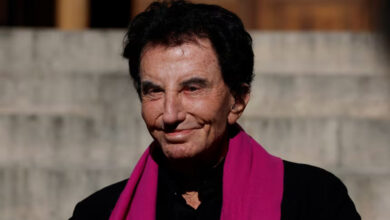
French President Emmanuel Macron will host a meeting of the two main rival leaders of chaotic Libya, his office said Monday, to try to “contribute to an end to the Libyan crisis.”
The head of Libya’s unity government, Fayez Sarraj, and General Khalifa Hifter, the Egyptian-backed commander of Libya’s self-styled national army, are to meet on Tuesday outside Paris, the presidential Elysee Palace said.
Libya, split between rival governments and militias, is a breeding ground for Islamic State militants and human-traffickers preying on migrants trying to cross the Mediterranean to Italy.
Sarraj is the prime minister of the UN-backed government in Tripoli, and Hifter, a powerful general backed by Egypt who lived for years in the United States, is fighting Islamic militants.
The two rivals met in May in the United Arab Emirates, and the hosts said the encounter led to a “significant breakthrough.” Libya TV said the men agreed on holding presidential and parliamentary elections next year in the fractured country.
The French statement said that France is “trying to facilitate a political entente” in the presence of the UN secretary general’s newly appointed special envoy for Libya, Ghassan Salame.
“With this initiative, France wants to mark its support for efforts to build a political compromise, under the auspices of the United Nations,” that includes all actors in the fractious country, the president’s office said. The challenge, the statement added, is to “build a state capable of responding to the fundamental needs of Libyans” with one regular army.
That is far from the current situation in which rival governments and militias have battled for supremacy since Libya descended into chaos following the 2011 civil war that toppled and killed dictator Moammar Ghaddafi.
A pacified Libya is widely viewed as the key to ridding the country of extremist groups, and arms and people trafficking. France and Europe see the return of a stable nation as vital to controlling borders — and cutting off the flow of migrants to Italy and, more broadly, ending its status as a danger zone for Europe.




